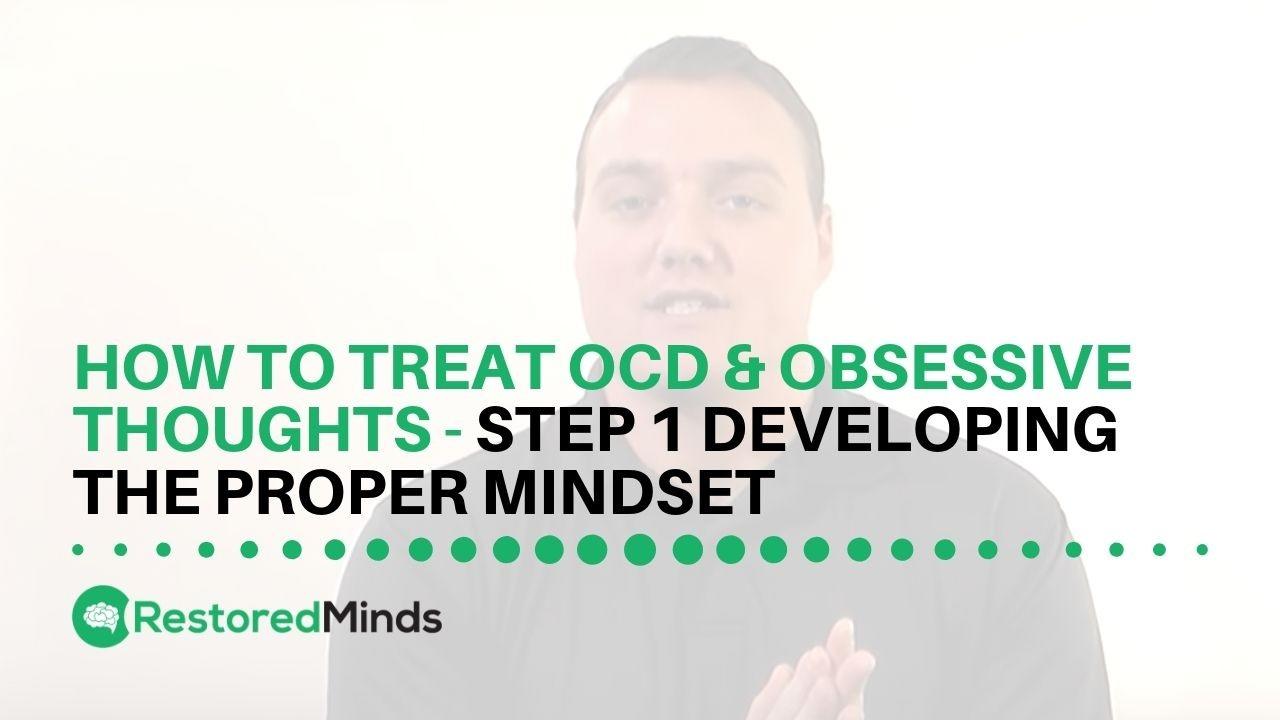Step 1 – Developing the Proper Mindset
Jul 17, 2017
How to Treat OCD & Obsessive Thoughts: Step 1 – Developing the Proper Mindset
When it comes to treating OCD or managing obsessive thoughts, adopting a war-like strategy can be incredibly helpful. OCD often feels like a battle, relentlessly invading every aspect of your life. But remember, victory is possible when you cultivate the right mindset.
Did you know that the term "obsession" is rooted in warfare? In Latin, the word comes from ‘obsessio,’ which was the initial phase of besieging a city by surrounding it and cutting off supplies. Recognizing this context can provide an interesting perspective on how OCD attacks your mind, and more importantly, how you can overcome it.
In this post, I will share four essential tips to help you develop the right mindset to combat OCD.
1. Exercise and Maintain a Healthy Diet
To overcome OCD, it’s essential to recognize that physical health and mental health are interconnected. Here are some tips to help you maintain a healthy body and mind:
-
Engage in regular exercise, such as a 20-30 minute walk or a gym session.
-
Follow a balanced diet low in sugar and rich in foods that provide sustained energy.
For more advice on diet and exercise, check out the detailed recommendations on my blog.
2. Realize That You Are Not a Victim
Adopting a victim mindset can make overcoming OCD much more challenging. It’s important to understand that you're not cursed or bound to this condition forever. Here’s why:
-
Take on the mindset that overcoming OCD is possible.
-
Stop seeing yourself as a victim and start believing in your ability to improve.
-
Remember, OCD is a disorder that you can overcome with the right strategies.
3. Develop a Desire to Get Better with Realistic Expectations and Persistence
Desire alone isn’t enough; it must be supported by realistic expectations and persistent effort. Here’s how to approach it:
-
Cultivate a strong desire to eliminate OCD.
-
Understand that overcoming OCD is a gradual process that involves behavioral changes.
-
Persistently work towards getting better, recognizing that it will take time to integrate new, healthier behaviors.
4. Recognize That Each Day is an Opportunity
Every day presents a new chance to improve. Here’s how to make the most of it:
-
View each day as an opportunity to take a step towards recovery.
-
Focus on making daily progress rather than stressing over immediate results.
-
Set a long-term goal of being 100% free from OCD and consistently work towards it.
Conclusion
To recap, the four essential tips for developing the right mindset to treat OCD are:
-
Exercise and maintain a healthy diet.
-
Realize that you are not a victim.
-
Develop a desire to get better with realistic expectations and persistence.
-
Recognize that each day is an opportunity.
By integrating these tips into your life, you'll be well on your way to achieving an OCD victory. For more information, please visit my website at www.restoredminds.com


